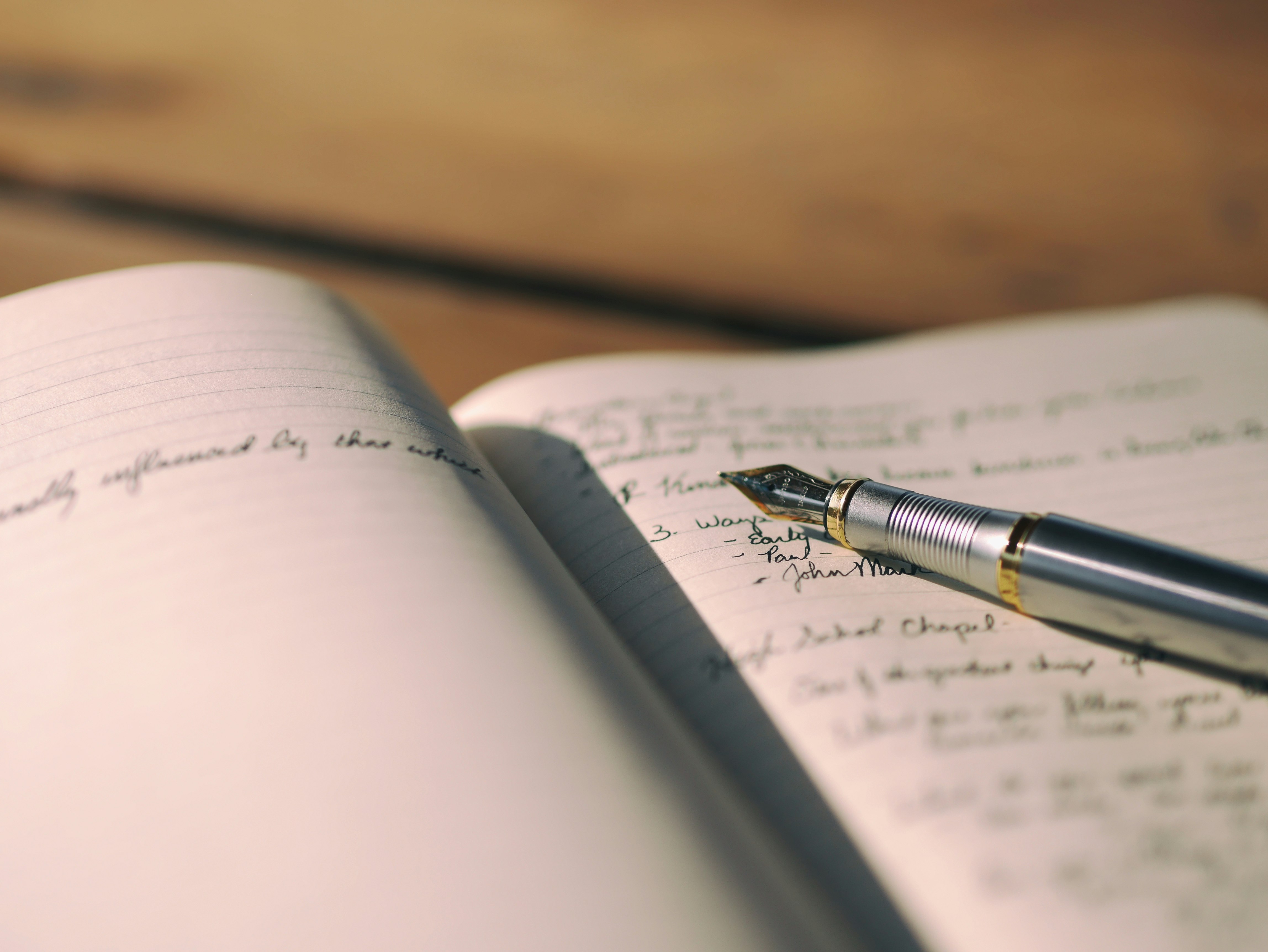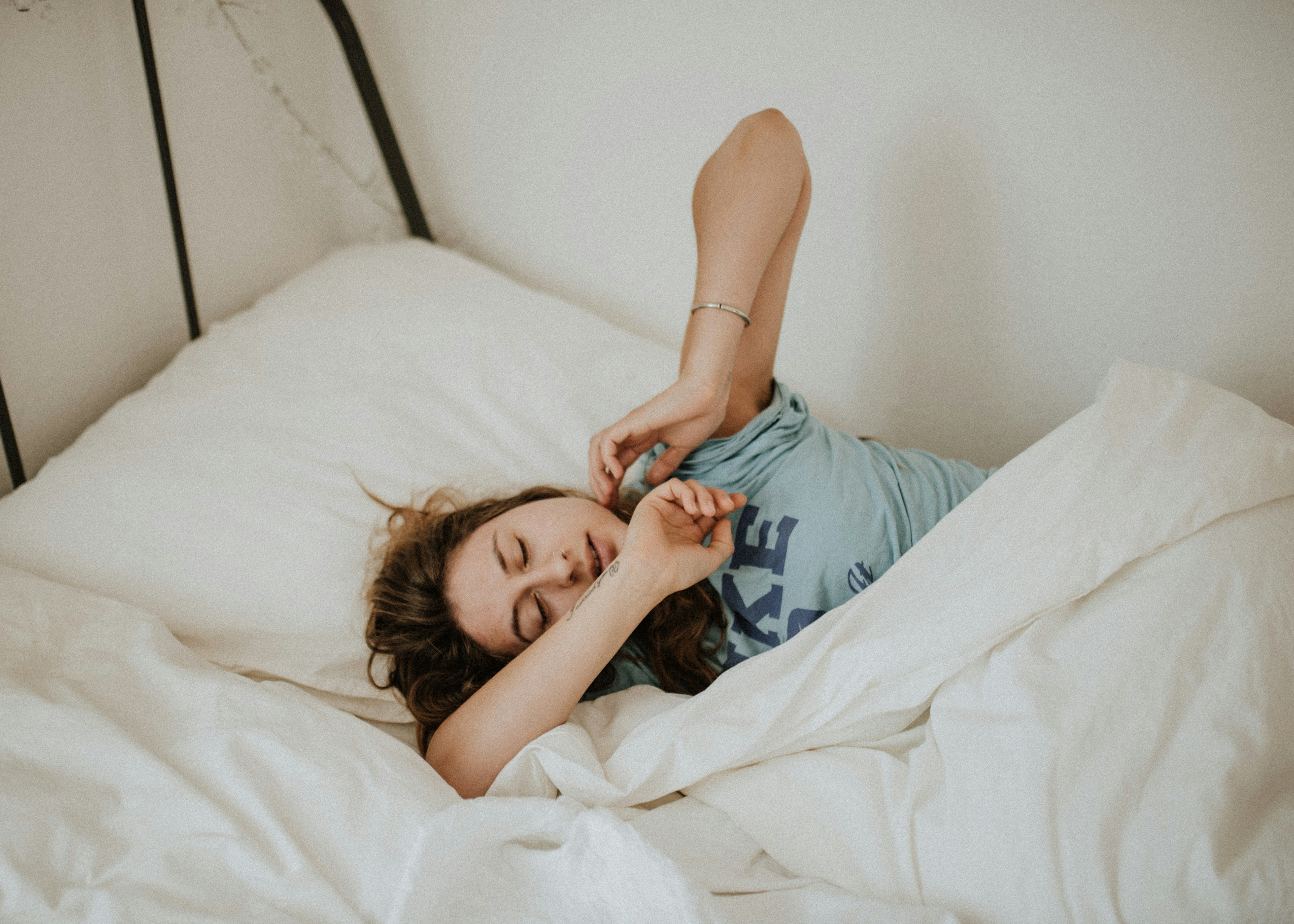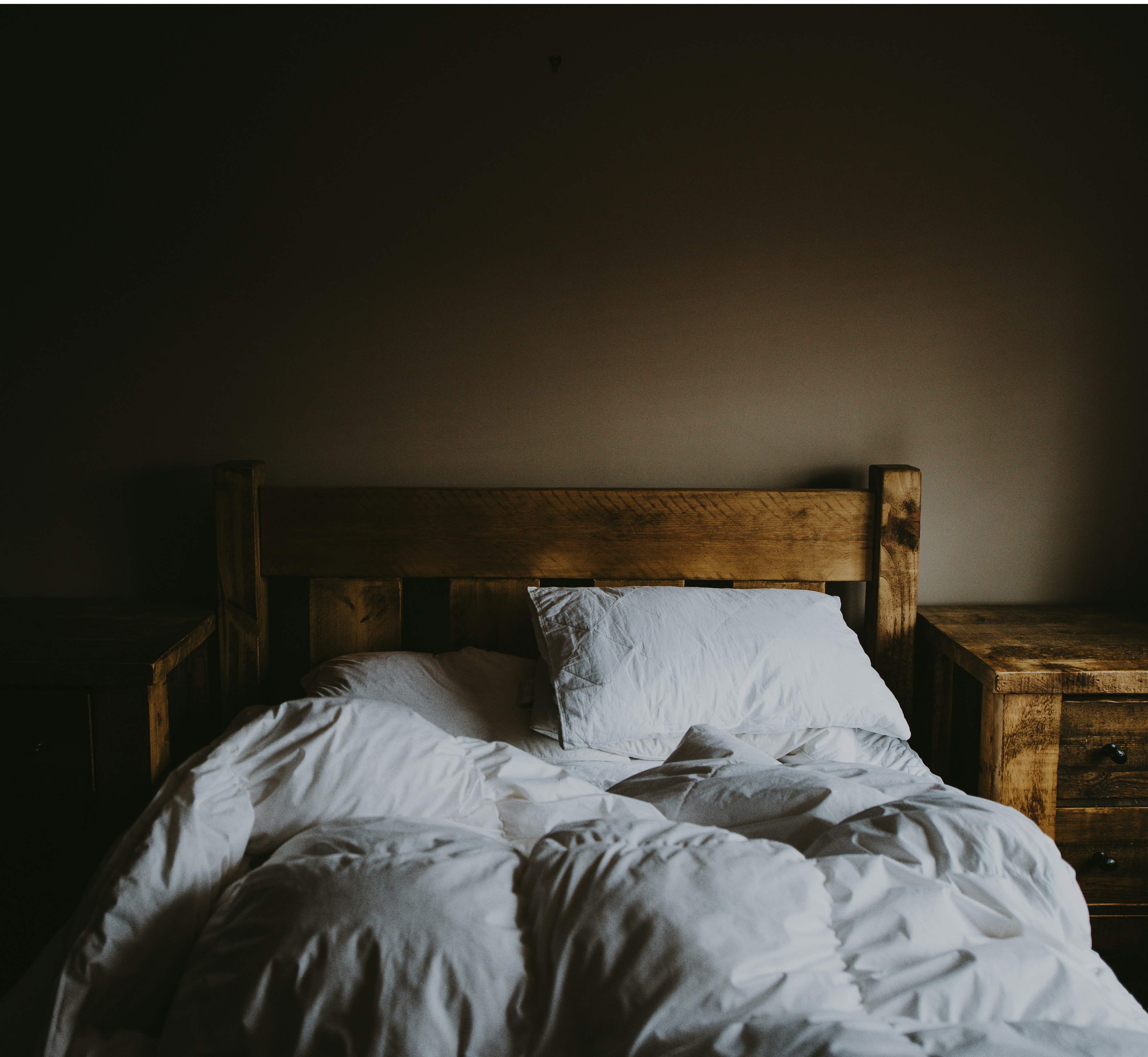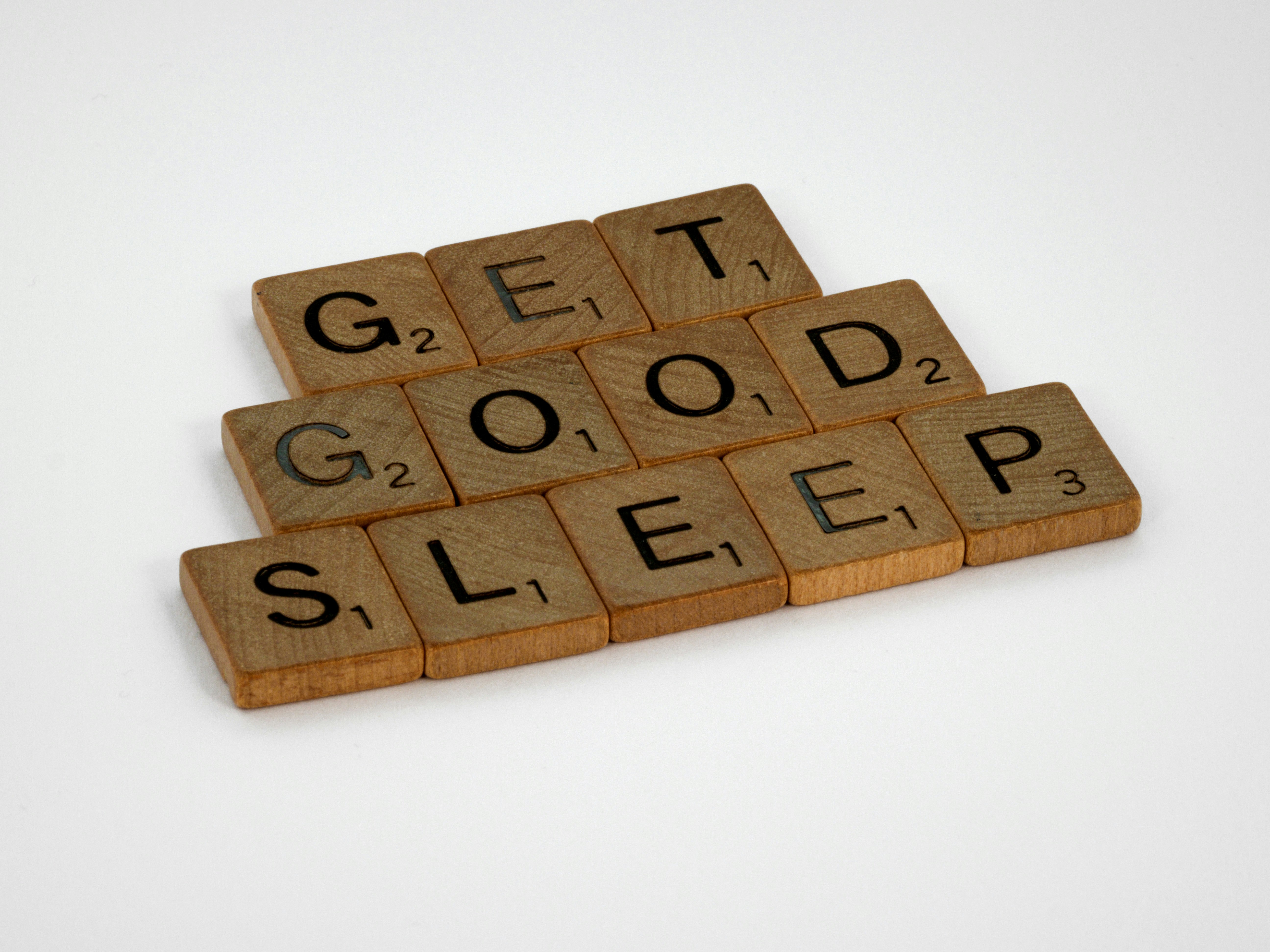Your sleep plays a very integral role in your overall health and well-being. A night of good sleep allows your body to rest, replenish, and recover, and make's sure that you're ready to take on the next day energized.
However, most people do not get the sufficient rest that they need. Insufficient or poor quality sleep or issues with insomnia have both short-term and long-term effects on not just the physical body, but also on one's overall mental and emotional health. Missing out on the healthy and recommended 7 to 8 hours of shut-eye every night does a lot more than make you feel just groggy and grumpy in the day.

Insufficient sleep in the long-run can cause slower processing speed, a reduced attention span, memory loss, poor and risky decision-making, a significant dip in energy, mood swings, and increased stress, anxiety, or irritability.
Insomnia or finding it difficult to fall asleep at night can be caused by diverse factors, such as underlying sleep disorders, medical conditions, a bad diet, or poor mental health.
What Is A Sleep Diary?
A sleep diary is one of the best tools for you equip yourself with on a journey towards improving your sleep. It allows you to record primary details such as what time you went to bed, if you woke up during the night, and what time you get out of bed in the morning woke in the morning, helping you track your sleep patterns and disrupted sleep.
You can use your diary to help you take note of secondary, but equally important, details about activities you're engaging in that you may feel could be affecting your sleep, such as the time of day you exercise, nap, take medication, have caffeine, eat your meals and so on.
Why Should You Keep A Sleep Diary?
To Better Track Your Sleep Patterns And Habits
While keeping track of your sleep is a lot more nuanced than just counting the number of hours you sleep at night, reviewing basic facts and other figures about your sleep can help you better understand how sleep works, how it's been working for you, why it is important.
Logging your sleep-related habits and patterns in one place can help you easily identify issues with your sleep hygiene. It can help you keep track of the nights that you don't feel rested from. When trying to establish a healthy sleep routine, sleep diaries help you keep information that you can refer to and analyze within your reach.

Combined, all the information that you record in your diary will be able to provide you a meaningful evaluation of your sleep efficiency. If need be, this facilitate appointments and check-ins with your doctor if you decide to go over your sleep schedule with them. It can reveal other factors that could be causing sleep problems.
Sleep diaries are not to be confused with dream journals. While sleep diaries focus on purely nightly sleep patterns, dream journals contain details of your dreams.
To Get Active About A Passive Activity
When you're actively keeping track of your sleep, you will naturally start to reflect and think about the importance of sleep on your life and be motivated to be more diligent in doing things that would help promote sleep rather than deprive you of it. By tracking your sleep patterns and the habits you engage in, you could identity that having less caffeinated drinks before sleeping and switching to other options such as chamomile tea or a cup of hot milk helps you sleep better.

You could also notice that the days you exercised in the evening or were physically more active throughout the were followed by great sleep, and start doing this more regularly. Overall, when you start keeping track of your sleep, you start to care about your sleep and do more of the things that promote it, and fewer of the things that keep you from it.
To Start Refreshing Your Bedtime Routine
Your sleep hygiene is pivotal in the quality of sleep and rest you get. Sleep hygiene refers to healthy habits, behaviours and environmental factors that can be adjusted to help you have a good night's sleep.
Switching up elements in your room, or even the overall design your bedroom environment could be a key factor in ensuring you get good, sound sleep. You're much more likely to want to head to bed and crash into your pillows and comforter if you're sleep setting is inviting, relaxing and suits your comfort preferences.

If you start to notice a recurring pattern of having lights, loud music, or distracting elements around your bed and in your bedroom before you decide to call it a night, your sleep diary can highlight these things to you and prompt you to change them, and to minimize potential sleep disruptions by making sure your bedroom is as quiet and dark as possible. Or if you've noticed your neck hurting, or that you've been breaking out in night sweats, this could alert you to change your pillows and look into regulating the temperature in your room to your comfort levels.
Sleep Diary Prompts
Here are some things you could keep track of in your sleep diary :
- The time you went to bed
- The time you actually fell asleep, if known, after getting into bed physically
- How many times you woke up during the night
- How long, each time, it took you to fall back asleep
- The time you woke up in the morning
- How many naps you took that day
- How long each nap lasted
- The medications you used in the day, and in general
- How much caffeine or alcohol you drank, and the times of consumption
Reviewing this information on your own may reveal some unexpected sleep barriers. Reviewing your diary yourself or with a physician or a specialist consultant will help you work together to improve your sleep habits and boost your overall health and resiliency.
Having a sleep diary is not the most pivotal component of ensuring you're getting a night of good rest. But with that being said, religiously logging in your sleep details can definitely make it easier for you or your doctor to identify disruptive sleep patterns, treat possible insomnia, and other sleep difficulties you may be having.
Tracking your sleep habits can also help you recognize when it would be a good time to consider refreshing or switching up your nighttime routine for a night of quality and restorative sleep.
Grab a diary and start tracking what might be getting in the way of your good night's rest. And get on a journey on getting back to a more-resilient self.
